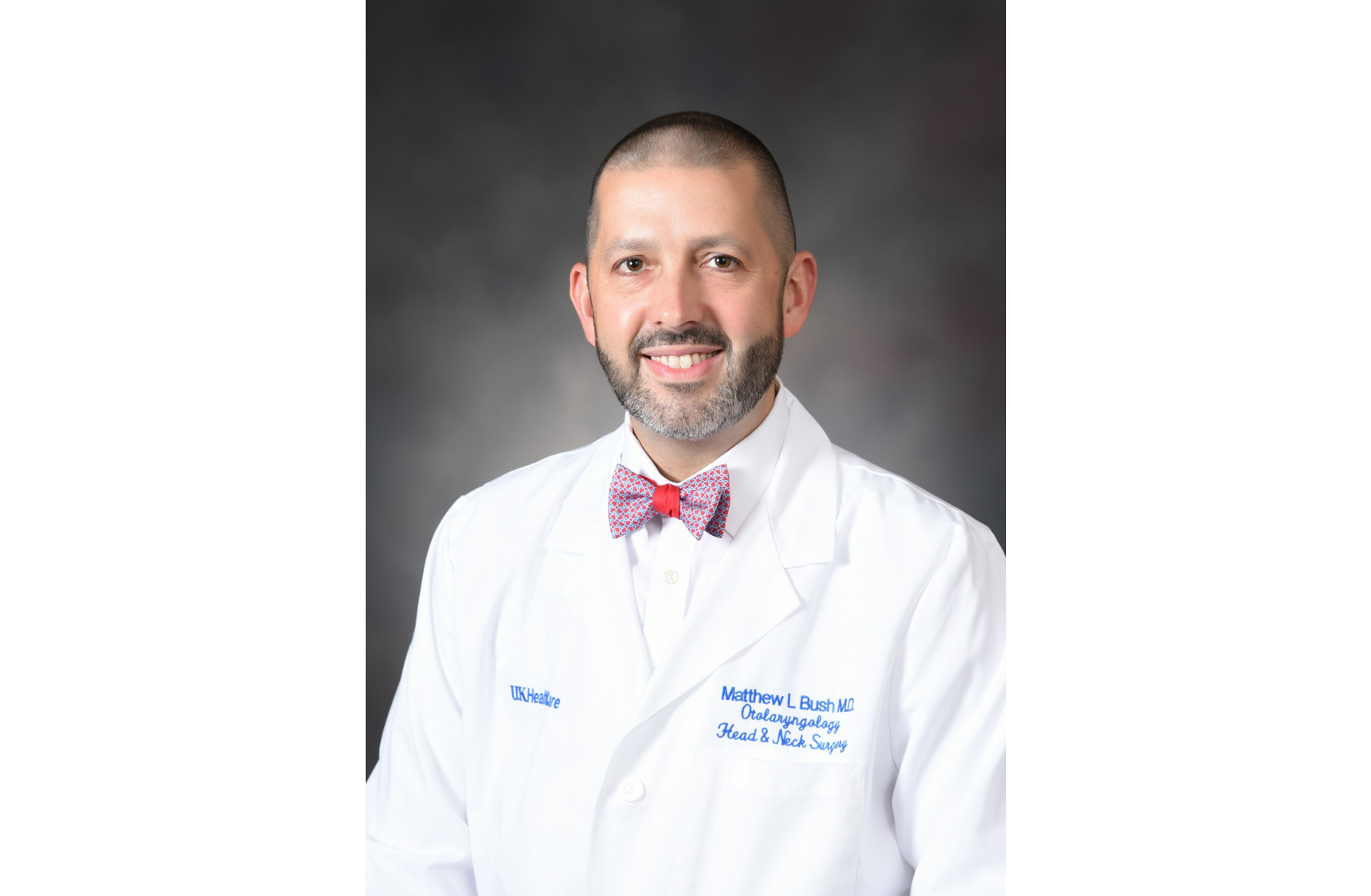Dr. Matthew Bush Highlights Positive Experience in UK College of Medicine's PhD Program in CTS
Matthew Bush, MD, PhD, MBA, is an experienced clinician, academic leader, and researcher. While he has been directly involved in health care and academia throughout his career, he credits the progress of his research career to a program he completed at the University of Kentucky College of Medicine while serving as a faculty member.
One of Dr. Bush’s biggest career objectives when he joined UK in 2011 was to expand the breadth and impact of research within his department and within his field. As a clinician he knew he needed to receive more training to grow as a researcher because medical training by itself doesn’t always offer rigorous, immersive training in clinical research methodology and leadership.
Dr. Bush reached out to Thomas Kelly, PhD, current interim chair of the department of behavioral science, who directed him to his department’s PhD program in clinical and translational science (CTS).
The PhD program in CTS was created as a collaboration between the UK Center for Clinical and Translational Science (CCTS) and the department of behavioral science to foster CTS as a discipline. It is designed for those who hold terminal professional degrees – MD, DMD, DDS, PharmD, etc. – or students in professional health colleges with dual degree programs. Individuals who enroll have the opportunity to enhance their research skills so they can lead interdisciplinary CTS research teams and sustain independent research programs that promote new discovery. It is designed for those who hold terminal professional degrees – MD, DMD, DDS, PharmD, etc. – or students in professional health colleges with dual degree programs. Individuals who enroll have the opportunity to enhance their research skills so they can lead interdisciplinary CTS research teams and sustain independent research programs that promote new discovery.
In addition to extensive research training, candidates of this program learn skills required for a leadership career in research such as grant writing, grant management, team leadership, and personnel and laboratory management. The program’s small class sizes allow for an intimate learning environment, yet the program brings in a wide variety of professionals in the health care field.
As a 2017 graduate of the program, Dr. Bush said the decision to apply was a game-changer.
“Courses in the PhD program in CTS are taught by faculty who are in the trenches, engaged in high-impact research,” Dr. Bush said. “The courses are practical and useful as I was able to utilize my own data and or research interests to complete assignments. The program is unique in that it’s somewhat discipline-agnostic as there are classmates who are in a variety of other clinical and research fields. It’s able to provide really high-yield learning for a diverse group of students while simultaneously supporting transdisciplinary collaboration.”
Through interactive courses and compelling instruction, Dr. Bush gained valuable research knowledge and skills such as research methodology, statistical analysis, data management, grant writing, and transdisciplinary collaboration. He also honed professional skills such as time management and goal-setting.
Dr. Bush currently serves as associate professor of otolaryngology – head and neck surgery and vice chair for research in his department. He also was a CCTS KL2 scholar. Many of the center's KL2 scholars and TL1 scholars are also doing their graduate work in the PhD program in CTS.
Dr. Bush feels more prepared than ever to capitalize on his initial goal of helping expand his department’s impact on health discoveries. In the end, the PhD program not only helped him become a leader in research, in both his lab and overall field, but also a better clinician and academic professional.
“There’s not a day that passes that I don’t realize the benefits I received from this program – professionally, collaboratively, and personally,” he said.
Click here to learn more about the UK College of Medicine's PhD program in CTS, or here to learn about all of the graduate education opportunities in the department of behavioral science.
